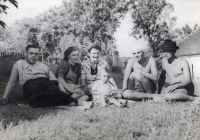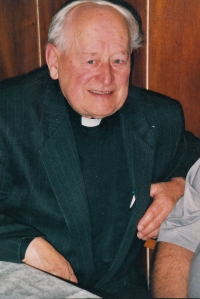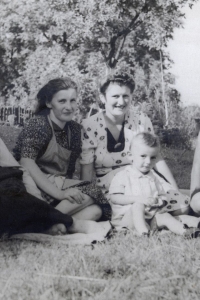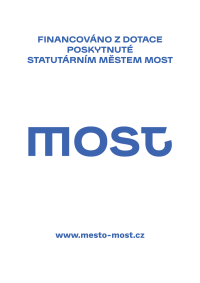Father was executed by the Nazis. Mother hid until the end of the war

Stáhnout obrázek
Stanislav Kostiha was born on 19 March 1939 in Ostrava. His father, a Catholic priest, Václav Kostiha, fell in love with his mother, Hedvika Hanzelková, who was his housekeeper, but the vow of celibacy stood in their way. She had to hide first her pregnancy and then the birth of her son, with whom she never returned to Václav Kostiha‘s parish. Six weeks after his birth, she gave him to his adoptive parents. They were Václav Kostiha‘s brother Stanislav Kostiha and his wife Blažena. From April to June 1942, the father hid the commander of the Zinc paratroop group, paratrooper Oldřich Pechal, at his rectory in Ždánice. After his arrest, the Gestapo came for Václav Kostiha himself and also Hedvika Hanzelková, who managed to escape. She had to hide until the end of the war. Václav‘s father was executed by the Nazis in the Kounic dormitories in Brno on 1 July 1942. The adoptive parents managed to change Stanislav Kostiha‘s birth certificate and save him from the Gestapo. He graduated in economics from the Mining University in Ostrava, and as a student, he applied to work at the Vítězný únor mine near Most. Together with his wife, Božena Kostihová, they became involved in the reproduction of samizdat church literature after meeting the Most parish priest, Father Radim Hložánek. After revealing his identity, Father Hložánek was arrested by State Security and sentenced to 20 months in prison. Stanislav Kostiha and his wife Božena escaped without punishment. He worked all his life in the mining industry, first in the Vítězný únor company and later in the Mostecká coal company. At the time of the interview in 2023, he lived in Most. We were able to record the story of the witness thanks to support from the Statutory City of Most.




